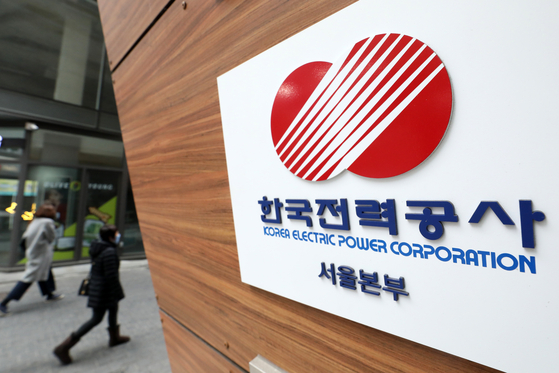
Korea Electric Power Corporation Seoul headquarters. News 1
The spread of new coronavirus infection (Corona 19) greatly reduced power consumption, but paradoxically, last year, KEPCO succeeded in turning into a surplus after three years. This is because the burden of fuel costs such as international oil prices has greatly reduced due to Corona 19.
KEPCO turns to surplus after 3 years even with Corona 19
On the 19th, on a consolidated basis, KEPCO disclosed provisional results of 58,569.3 billion won in sales and 4.86 trillion won in operating profit last year. It turned to a surplus from a loss of 1.27 trillion won last year. It succeeded in turning into a surplus in 3 years.
Among them, electricity purchase costs for private power generation companies and fuel costs for power generation subsidiaries were KRW 30,5192 billion, down 6,114 billion KRW from 36,5306 KRW in the previous year. As KEPCO’s main costs decreased, profits increased.
In particular, the amount of electricity purchased by KEPCO from private power generation companies increased by 2.0% from the previous year, but the cost of purchasing electricity decreased by KRW 2.544.5 billion due to falling natural liquefied gas (LNG) and oil prices.

Electricity market price. Korea Electric Power
Looking at the actual electricity market price, it decreased from 90.7 won/kWh in 2019 to 68.9 won/kWh in 20 years. Compared to the average of the last three months (55.8 won/kWh), the electricity purchase cost, which rose to a maximum of 112.4 won/kWh in March 2019, has dropped by about 50.4%. It means that the fuel cost was so cheap that electricity could be made at low cost.
Subsidiary fuel costs also decreased by KRW 3,466.9 billion from the previous year due to falling fuel prices such as oil and bituminous coal prices.
By power generation source, the utilization rate of nuclear power increased from 70.6% in 209 to 75.3% last year. On the other hand, during this period, coal power generation decreased from 70.8% to 61.2%.
KEPCO said, “Last year, KEPCO’s operating performance was more affected by fluctuations in international fuel prices such as oil prices than the utilization rate of nuclear power plants.”
Electricity sales decline ↓… Electricity rate hike in 2H?
On the other hand, due to the spread of Corona 19 and a prolonged rainy season, last year’s electricity sales decreased 2.2% from 2019.
As the number of’Zipcocks’ increased, electricity sales for houses increased (5.0%) compared to the previous year, but for industrial use (-3.7%) and education (-12.2%) decreased significantly. For this reason, electricity sales revenue decreased by 2.8 trillion won compared to 2019.
It is difficult to expect earnings improvement this year due to low oil prices. This is because international oil prices and LNG prices have recently soared due to the anticipation of the Corona 19 recovery and the impact of the cold wave. In particular, this increase in energy prices is expected to be reflected in electricity bills over 6 months.

Starting this year, the fuel cost indexing system will be implemented to reflect changes in fuel cost prices to electricity bills. As international oil prices are rising, electricity rates may increase from 2H. yunhap news
The burden of fuel cost hikes will be passed on to consumers when the energy linkage system is implemented from this year. From the second half of the year, electricity rates can rise in earnest.
KEPCO said, “Apart from fuel costs, we are pushing ahead with efforts to reduce electricity supply costs of about 37% of operating costs, and achieved a cost reduction of about 470 billion won last year.” Said.
Sejong = Reporter Kim Namjun [email protected]
